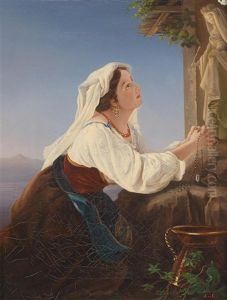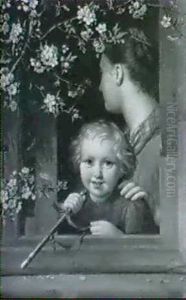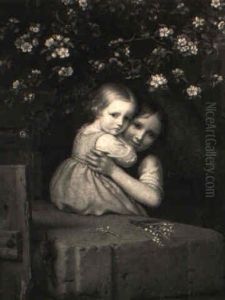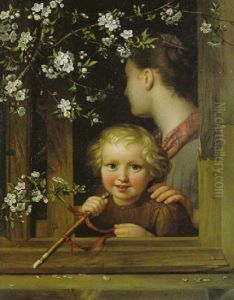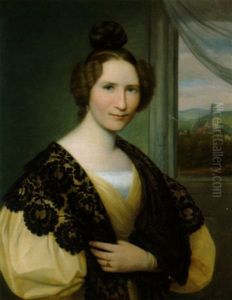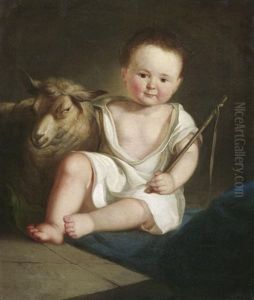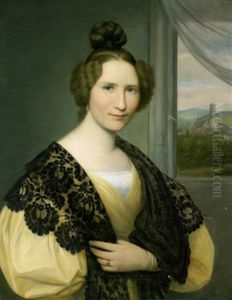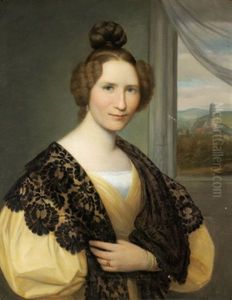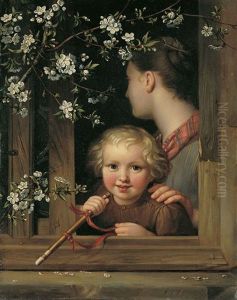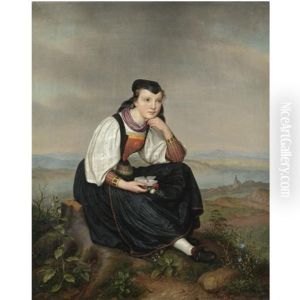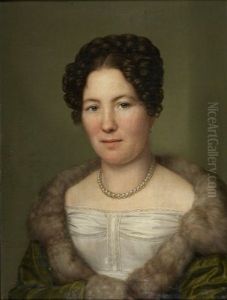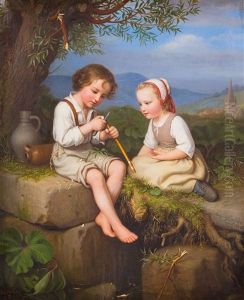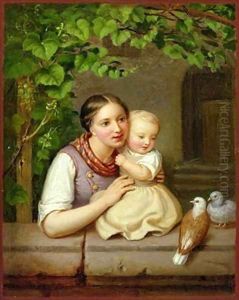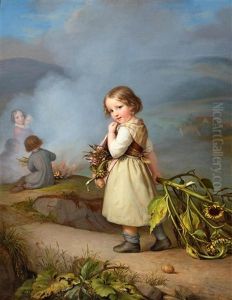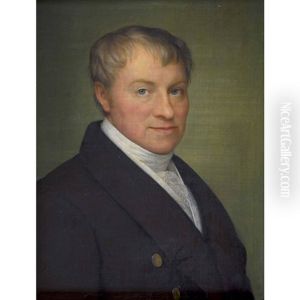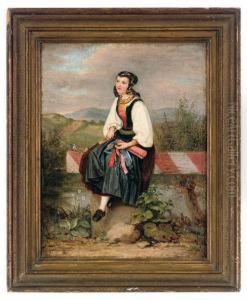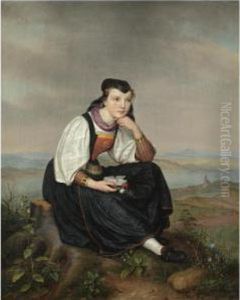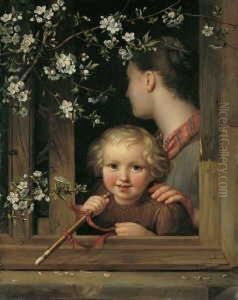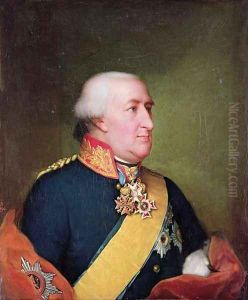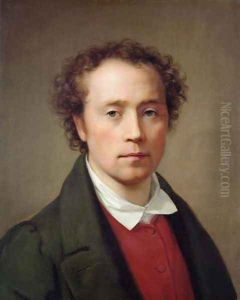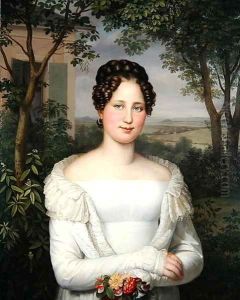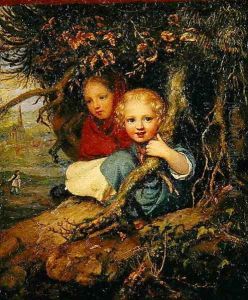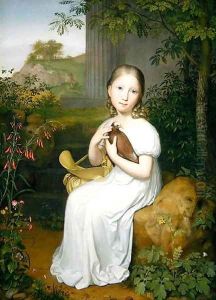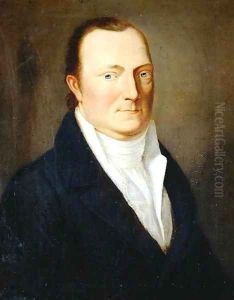August von der Embde Paintings
August von der Embde was a 19th-century German painter and draughtsman known for his landscapes, portraits, and historical paintings. Born on November 17, 1803, in Kassel, Germany, Embde was part of a period that saw significant transformations in European art, moving from Romanticism towards Realism. He received his early education in the arts at the Kassel Academy, where the emphasis was on classical and historical subjects, a foundation that would influence his later work.
Embde's early career was marked by his travels through Europe, which significantly impacted his artistic development. He spent considerable time in Italy, particularly in Rome, where he was influenced by the Italian landscapes and the works of the Renaissance masters. These experiences enriched his palette, technique, and thematic choices, integrating the classical ideals of beauty and nature with a keen observation of the natural world.
His return to Germany saw a maturation in his style. Embde became known for his ability to blend the Romantic emphasis on emotion and the sublime with a detailed, almost realist representation of nature and historical accuracy in his depictions of scenes from German history. His landscapes, often imbued with a sense of nostalgia and the beauty of the German countryside, were particularly celebrated for their atmospheric effects and the precise rendering of natural elements.
Throughout his career, Embde also engaged in portrait painting, capturing the likenesses of notable figures of his time as well as those from the ranks of the bourgeoisie, thus documenting the social fabric of 19th-century Germany. His works in this genre are characterized by a keen observation of character and a meticulous approach to depicting the textures of fabrics and the subtleties of expression.
August von der Embde's contributions to German art were recognized in his lifetime, and he was a respected member of the artistic community. However, as the tides of art history moved towards Modernism, his work, like that of many of his contemporaries, was somewhat overshadowed. Nonetheless, his paintings remain an important testament to the transitional period of the 19th century, capturing the interplay between the Romantic and the Realist, the historical and the natural. Embde passed away on March 28, 1862, in Marburg, leaving behind a legacy that, while perhaps not as widely known today, offers valuable insights into the artistic and cultural shifts of his time.
